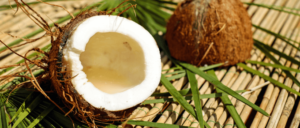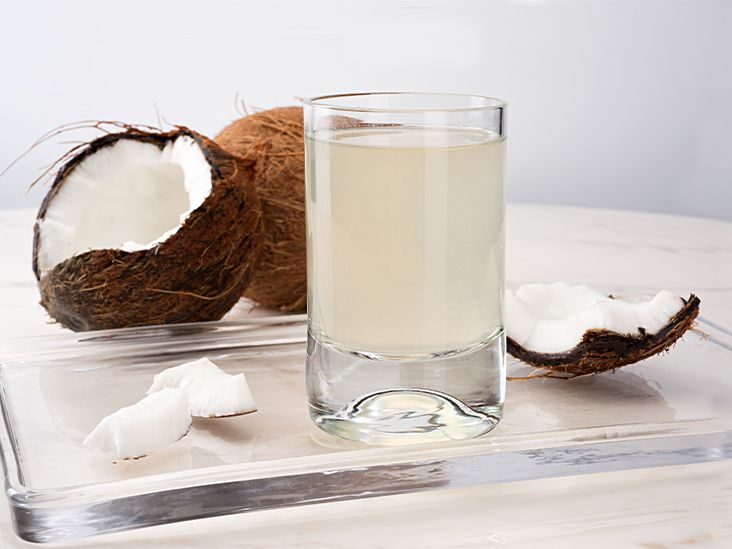Coconut water, oh yes. The hottest beverage, the post-workout hydrator, the tropical holiday elixir, came for its electrolyte magic. But what if that pleasant drink from paradise turned sour? What if, instead of energizing your spirit and restoring your body, it sent you to the land of nausea, stomach cramps, and possibly worse?
It’s a scenario from a beach bum’s worst nightmare, yet it’s all too real. Spoiled coconut water, whether in split shells or past its prime, can cause a stomach storm. So, before you naively believe every coconut vendor on the beach, let’s talk about what happens when you drink terrible coconut water and, more importantly, how to avoid that tropical digestive nightmare.
Are you ready to distinguish between what you can sip and what will hurt your stomach?
Let’s start looking what happens if you drink bad coconut water!
Signs That Your Coconut Water Has Gone Bad
Let’s set the scene before we get into the hostility. What exactly qualifies as “bad” coconut water? It is an outcome of time and circumstance. Unrefrigerated liquid sunlight, fractured shells, and poor storage can all hasten the growth of bacteria and yeast, changing your liquid sunshine into a microbial breeding ground. So, how do you identify it?
- Smell: The smell of fresh coconut water is delicate and sweet. If your cup emits a sour, soured, or even mouldy odour, avoid it!
- Taste: The predominate note should be sweetness, with a tinge of earthiness. The food has gone wrong if your sip tastes sour, vinegary, or just plain gross.
- Texture: Fresh coconut water has a naturally smooth texture. Stay away if it feels slimy or has floating pieces.
Remember, when in doubt, throw it out! Take your time with your gut health.
What happens if you eat bad coconut?
 This is the not-so-beautiful part. What horrible things are waiting for people who accidentally drink bad coconut water? The microbial perpetrators cause a chain reaction of digestive problems, including:
This is the not-so-beautiful part. What horrible things are waiting for people who accidentally drink bad coconut water? The microbial perpetrators cause a chain reaction of digestive problems, including:
- Nausea and vomiting: The body’s mechanism of eliminating undesirable intruders.
- Stomach cramps and bloating: Get ready for a painful battle inside your body.
- Diarrhea: Get ready for a quick and unpleasant evacuation.
- Dehydration: Ironically, the precise reason you sought out rotten coconut water can be worsened by it.
In the worst cases, people can get bacterial illnesses or food poisoning. So it’s not just a stomachache that will go away; it could ruin your whole holiday and even longer.
Beyond the Beach: Spoiled Coconut Water Lurks in Unexpected Places
Remember that bad coconut water isn’t just dangerous in faraway places. There may also be saboteurs hiding in grocery stores and health food shops. Always check expiration dates and, once again, trust your instincts when selecting pre-packaged options.
FAQ’s (Frequently Asked Questions)
Is it OK to drink brown coconut water?

When it comes to young coconuts, a little browning is usually nothing to worry about. That being said, act with caution and throw away the water if it is dark brown, cloudy, or has any of the other signs of spoilage listed above.
Why does coconut water spoil so fast?
Within the unbroken shell, coconut water is naturally clean. However, once opened, it is vulnerable to bacteria and yeast in the environment. Furthermore, warm temperatures hasten decomposition. This is why unsealed coconut water must be refrigerated, especially in hot areas.
Why does my coconut water taste sour?
A sour taste is a telltale symptom of fermentation, indicating the presence of undesirable bacteria and yeast. Say “aloha” to the fridge and wave goodbye to that dubious sip!
How long is coconut water good for?
Coconut water should be drunk within 24 hours of being opened and stored in the refrigerator. Consider purchasing a reusable coconut water container with a built-in filter for maximum freshness.
Should coconut water be yellow?
Any coconut, especially older ones, will naturally have a slight yellow tint. A solid yellow or brown colour, on the other hand, is a red flag. When in doubt, use transparent or translucent coconut water to ensure freshness.
Can bacteria grow in coconut water?
Sadly, yes. When the coconut is opened, bacteria and yeast from the environment can contaminate and ruin the water. Proper storage and consumption standards are critical to preventing this unwanted growth.
Sum-up
So there you have it: the plain truth about coconut water’s evil side. But don’t let it stop you from enjoying this delightful drink! You can comfortably navigate the tropical beverage terrain and keep your digestive system happy by arming yourself with knowledge and taking a few easy measures.
Remember that smart sipping is the key to experiencing the actual magic of coconut water: exquisite hydration, electrolyte goodness, and a healthy dose of tropical happiness—all without the stomach-churning adverse effects.

Leave a Reply